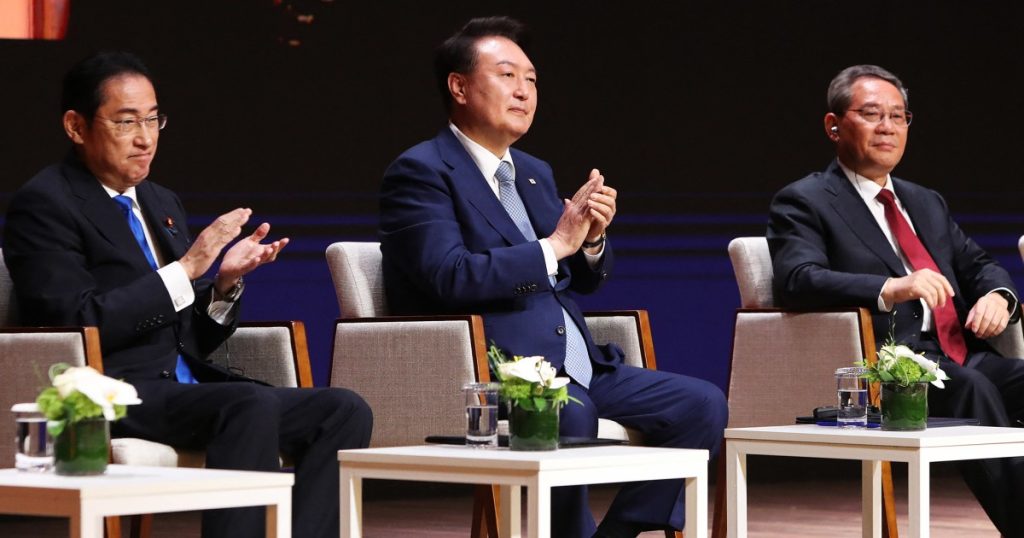Chinese Premier Li Keqiang met with South Korean President Yoon Suk Yeol and Japanese Prime Minister Fumio Kishida in Seoul in the three countries’ first trilateral meeting in over four years. The goal of the meeting was to discuss reviving cooperation to tackle shared challenges, such as economic uncertainties and instability caused by wars. Although the leaders agreed to promote people-to-people exchanges and work together on economic issues like supply chains and free trade deals, the depth of their future cooperation remains uncertain due to longstanding complex issues.
During a joint news conference after the meeting, Li emphasized the importance of cooperation among China, South Korea, and Japan on economic issues, environmental concerns, and health challenges. However, he also expressed reservations about the two countries’ strengthening security partnership with the United States, warning against the formation of blocs to contain China. China is particularly wary of Japan’s plans to purchase U.S. military equipment and conduct military drills with the U.S. and South Korea, which have raised concerns in Beijing.
The trilateral meeting also had to contend with North Korea’s announcement of its plan to launch a satellite, a move that could violate U.N. bans. South Korea, Japan, and the U.S. called on North Korea to withdraw the plan, with President Yoon urging for international action if the launch goes ahead. However, Premier Li did not mention the launch specifically and focused on promoting peace and stability on the Korean Peninsula through political dialogue, highlighting China’s role in the region’s security dynamics.
South Korea, Japan, and the U.S. have long urged China to use its influence to persuade North Korea to abandon its nuclear ambitions. However, China is suspected of circumventing U.N. sanctions on North Korea and providing clandestine aid to the country, raising concerns about its commitment to regional stability. During bilateral meetings with Li, both President Yoon and Prime Minister Kishida raised concerns about various issues, including North Korea’s nuclear program, human rights abuses in Xinjiang, and China’s actions in the South China Sea and around Taiwan.
Prime Minister Kishida called for the appropriate handling of sensitive issues and differences among China, Japan, and South Korea, emphasizing the need to respect each other’s core interests and concerns. Despite the challenges and differences between the three countries, the trilateral meeting was seen as a positive step towards enhancing cooperation in Northeast Asia. The potential for further collaboration on economic, cultural, and environmental issues, as well as regional security challenges, remains uncertain as the countries navigate complex geopolitical dynamics and historical tensions. Going forward, the ability of China, South Korea, and Japan to find common ground and address mutual challenges will be crucial for promoting peace and stability in the region.


